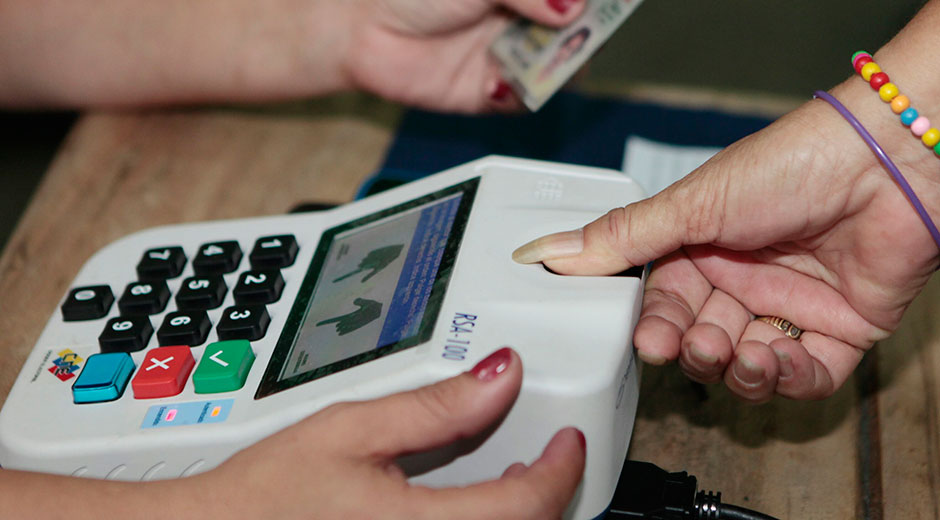A system designed to undermine
For Saturday, June 11, 2016. Translated by Javier Liendo.


For Saturday, June 11, 2016. Translated by Javier Liendo.
 Tibisay Lucena, head of the National Electoral Council, issued a statement this Friday with all the cynicism we’ve come to expect, saying that the signature validation process was technically flawless, without delays and that the CNE had worked with diligence; with few relevant explanations and the usual threats.
Tibisay Lucena, head of the National Electoral Council, issued a statement this Friday with all the cynicism we’ve come to expect, saying that the signature validation process was technically flawless, without delays and that the CNE had worked with diligence; with few relevant explanations and the usual threats.
The process
Imagine that you’re taking a final. Before evaluating your answers the teacher decides to grade the aesthetic value of your handwriting, the ink you used to write and whether you used muletillas or not. If you don’t meet that criteria, she won’t evaluate your answers; but if you pass, the teacher tells you to forego the test, in case there’s a chance that you’re taking it under pressure, with few hours of study and with insufficient light to write. The test is the proof of your deliberate choice to be evaluated, but the teacher gives you time to rethink.
Verifying
When you go to the CNE’s web page and enter your cédula in the tex tbox: “Review your information. Process of validation and exclusion of the registry presented by the mud.” – The lowercase is no accident-, two things can happen:
- Either your signature wasn’t validated and the explanation you get is: “This cédula can’t be found in the registry presented by the MUD party.” No specific reason for your case y sin derecho a pataleo.
- Or it was validated and then the signatory’s information will appear (name and cédula), then you can download the exclusion form and the addresses of the CNE’s regional offices.
Tascón’s paila
The CNE’s system is designed to undermine the recall referendum, not to make it possible. All those days of delays are a violation of article 72 of the Constitution; and don’t even mention the signature invalidation bullshit, because only the voter – like the student – has the power to do that. I’m part of the 605,717 signatures that didn’t meet CNE’s crazy criteria. Maybe my signature had a mistake, maybe it was my cédula; maybe my names and last names didn’t match, or perhaps the form’s letterhead had errors. I’ll never know and I can’t protest it.
Eso sí, the number of invalid signatures among my immediate relationships is absurdly superior (90%) to valid ones. If the database created by transcribing voters’ forms wasn’t cross-referenced with the upgraded version of the Lista Tascón, then it must be fate, because most invalid signatures in my circles belong to people with a high political commitment, good handwriting, better signatures and fingerprints.
What’s next?
Allowing people to back-track is more important than authenticating the signatures, that’s why it’s the process’ priority and next week, between June 13th and 17th, citizens will get the chance to remove their signature. Validating your decision will be possible between June 20th and 24th in the CNE’s regional offices – located in each state’s capital -, strictly during office hours: from 8:00 am to 12:00 m. and from 1:00 pm to 4:00 pm. But the process could be suspended by the least alteration of public order.
The CNE’s system is designed to undermine the recall referendum, not to make it possible.
See, this is funny: the government purchased thousands of captahuellas but only three hundred coroticos are available, nationwide, for the validation. The fact that voters in Miranda will have to authenticate their signatures in Los Teques isn’t just an abuse, it’s viciousness. Since Tibisay didn’t hold a Q & A, little is known about the estimated validation time per fingerprint – which would allow projections to determine if it’d be possible to complete the process within the available dates and periods of time -; what happens with regions that suffer power cuts – scheduled or not – that could interfere with the available periods for authentication. It’s not even known how much next week’s exclusion process will impact on the following week’s authentication procedures.
Until next month
Even though the fingerprint scanners are connected to a cloud, and data is uploaded in real time, there won’t be results of the process until July 26th. That’s the date on which we’ll know if we achieved the proportional 1% signatures per state. Transcribed information allows the PSUV a terrifying range of action, when blackmailing people in exchange for social benefits amid such a severe collapse, isn’t at all difficult. I guarantee you, the most important thing is achieving the validation of that 1% per state. There are some in which we have lots of people, but in others, the margin is so narrow and the crisis is so severe, that the bad guys can get away with it.
It’s now when political parties will have to put their campaign machines to the test, specially in difficult states. The data cross-referencing process in this phase may have allowed the government to screen for voters who are less committed to the opposition’s cause or more malleable by chavismo. The PSUV has to make sure that the 1% is never fulfilled. Anyway, they can organize another fight in a regional office, call for an “opposition” protest, loot a truck or cut the power. Their capacities for evil are unquestionable.
Caracas Chronicles is 100% reader-supported.
We’ve been able to hang on for 22 years in one of the craziest media landscapes in the world. We’ve seen different media outlets in Venezuela (and abroad) closing shop, something we’re looking to avoid at all costs. Your collaboration goes a long way in helping us weather the storm.
Donate




